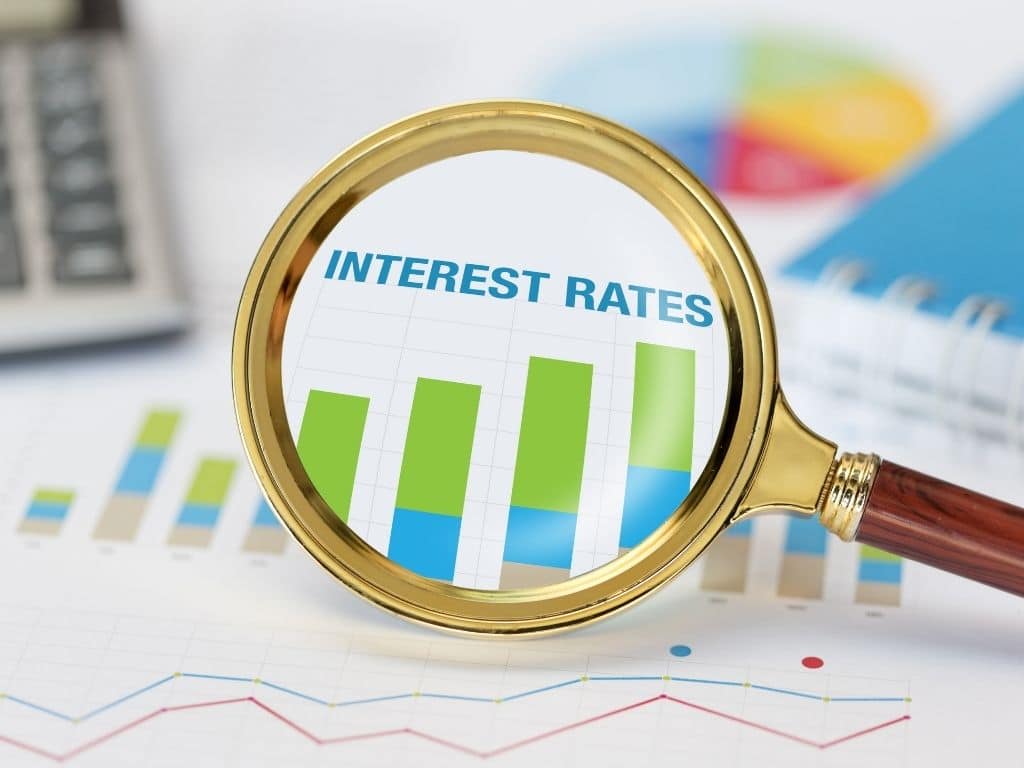The overall interest rate environment definitely affects Cap Rates as well as the type of property, the credit standing of the tenant, and the geographical area of your income property. In other articles, I’ve discussed most of these issues, but the one we haven’t looked at is how interest rates affect Cap Rates.
First of all, when interest rates are discussed, people automatically think of mortgage rates. It’s true, interest rates on mortgages do make a big difference, but I personally feel that interest rates have a bigger impact on the price of income property irrespective of mortgages. Currently here in Los Angeles, over 40% of the buyers for a property worth over $1 million, are all-cash buyers*. So for those buyers, it’s pretty obvious that interest rates on mortgages are not going to sway them one way or another on a purchase. What does sway them is; “where’s the best place to put my money?”
When CDs that pay over 1% are hard to find and 10 Year Treasury bonds are paying less than 2% and the stock market is at all-time highs, a person or investment fund is hard-pressed for options. So when a well-heeled propertied person looks over all his/her options, good quality income real estate looks very attractive.
For those of you that have been in the rental property game for many years, you’ll recall that cap rates in the LA area back in the ’90s were in the 8% range. Over time as interest rates across the board have fallen, so have cap rates. Today in the LA area, high-quality apartment buildings in good-quality neighborhoods have cap rates as low as 3%. This is the lowest we’ve ever seen! So what does this mean for an investor?
Let’s take an apartment building that back in the ’90s was worth about $1 million dollars with an 8% cap rate. That puts the rental income at $80,000 after expenses (NOI). Let’s look at the value of that same apartment building as interest rates drop. At a 6% cap rate with the same $80,000 NOI, the value of that building has gone up to $1,330,000. So many people think their property went up due to inflation, but that just isn’t true. In this case, an investor looks at this property and when he compares investing his money in the various investment opportunities available to him, he feels that paying a higher price for a property that will give him a 6% cash flow is worth it. So the owner of a building that did absolutely nothing to it, not even raising the rents, sees his property value go up 33%!
This lowering of cap rates is called Cap Rate Compression. As interest rates continue to fall, let’s move forward to that same property with the same $80,000 of rental income and see what it is worth at a 4% cap rate. Now that same property has a market value of $2,000,000. Again, the property owner did not raise the rents and did nothing to improve the value of his property, the increase was only because a buyer was willing to pay more for it. You can see that as the cap rate dropped in half from 8% to 4%, this caused the apartment value to double in value from $1,000,000 to now $2,000,000. These numbers are very real and are indicative of the values that are available here in L.A. Again, in this case, the property owner did nothing to improve the value of his property, yet it doubled in value purely due to interest rate reductions in the broader financial markets (and hence a corresponding reduction in cap rates) encouraging investors to pay a lot more for that same property.
Now, this is great for property owners that have held their property for some time, but what’s going to happen going forward? First of all, Cap Rates can only go down so far, just as interest rates can only drop so much. Let’s face it, the rates we’re seeing are the lowest any of us have ever seen. Rates can now only either move sideways or go up.
So when rates start to go up again (which the Federal Reserve is often talking about) what’s going to happen to cap rates and the value of income property? The first most obvious thing is that with higher rates, mortgage payments will be higher. This makes it harder to get a loan and drops the net income you’ll receive after debt service as a property owner since a bigger portion of your rental income will be going to service the debt with a higher interest rate. This will make it harder to justify buying a property for those high prices.
So now let’s look at what is known as Cap Rate Decompression. So let’s say you were the buyer of that $2,000,000 apartment building with a 4% cap rate. Interest rates start going up. When they do, who’s willing to buy an apartment building that is paying 4% when that investor can buy a US Treasury bond that’s paying 5%? That’s right, the bond is much safer than the apartment building, so investors are not willing to pay that high of a price for a rental property. If cap rates start going up to say 6%, what’s the value of your building you paid $2,000,000 for? That’s right, it dropped down to $1,330,000, assuming your rent stays the same. The only way you can increase the value of your property is to raise your rents and get a higher income from your tenants. In many cases, you can do that, but you have to look at the rents you are getting in comparison to the local market. If you are already getting market rents, it’s unlikely that you’ll be able to raise them and keep your tenants. This effect could even be magnified, as with higher interest rates, a business could slow, jobs could be harder to find and/or at lower salaries, thus potentially depressing rental income.
So, the current real estate market is very exciting and many of our clients are astonished at the prices that are being offered for their buildings, but when the market has gone up as much as it has, that’s when we have to really pay attention. We all saw what happened in the last crash. With a solid understanding of how cap rates work, you can be a lot smarter about buying and selling income property.




